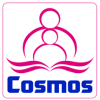Research Article
Aim & Scope
The main purpose of Amasya Journal of Social Science Research is to contribute to the scientific knowledge at national and international level by delivering qualified research in the field of social sciences prepared in Turkish and English to interested people and researchers as open access.
The scope of Amasya Journal of Social Sciences Research, which started its publication life as an e-journal, consists of original publications in the fields of research, compilation and book review in the fields of educational sciences, religious sciences, psychology, history, literature, economics, public administration and translation and interpreting.
Author Guidelines
Our journal only accepts studies prepared in Turkish and English.
Studies should be prepared according to the article template created by our journal. The author and the institutional information of the author or authors should not be included in the article file to be submitted.
Please submit the files listed below in the specified file formats during manuscript submission:
(1) Anonymous article from which author information is extracted (All personal identification information contained in the file content should be deleted along with the file properties.)
(2) Copyright transfer form (It should be prepared using the template provided by the journal and signed by all authors.)
(3) Similarity report in pdf file format gained by a plagiarism software such as Turnitin or iThenticate for the submitted article
(4) Official ethics committee decision in pdf file format for researches requiring ethics committee approval
If additional files required for the article are to be submitted, they should be submitted in the "Appendices" part of the full-text articles.
If the article is accepted at the end of the blind review process, authors will be asked to add the author information and other necessary information to the relevant places in the accepted version of the article.
Article Structure
In this journal, Turkish full text with English short abstract or English full text with Turkish short abstract are accepted. Though there are no strict rules during article submission; articles should be submitted in the following structure: Title, Abstract, Keywords, (English Title, Abstract and Keywords) Main text (Introduction, Literature Review, Methods, Results, Discussion/Conclusion), Ethical approval of the research (if necessary), Researcher's contribution rate, statement of support and appreciation (if necessary), Conflict statement, Appendices (if necessary). Besides, other items required for the evaluation of the article can be added. In the "Method" or "Ethical Approval of the Research" sections of the article, the essential information (name of the committee, date of approval and issue number) in the Ethics Committee Approval must be submitted.
Word Limit
There is a maximum limit of 10000 words with bibliography for research and review articles For book review, there is a maximum limit of 5000 words. Articles above this word limit should be submitted with the justification. Turkish and English abstracts of the articles should consist of 200-250 words. Turkish and English keywords should be 3, 4 or 5.
Author Information
An author should be specified as a "corresponding author" If any of the authors change institutions or change their contact information during the referee process, the relevant institution or contact information change should be made before the publishing stage. Institution and contact information cannot be changed in the articles after publication.
Figures
Each figure should have a title and the titles should be expressed with numerical numbers starting from Figure 1. The figures to be used in the article should be of high quality. Drawings should be 1200dpi, grayscale figures 600 dpi and color figures 300 dpi. In addition to shapes created in Microsoft Word (doc or docx); Figures in EPS, PS, JPEG and TIFF file formats are accepted. Each figure should be cited in the text.
Tables
Each Table should have a title and the tables should be numbered numerically starting from Table 1. Tables should be arrangeable Each table should be cited in the text.
Equations
Equations should be editable. Do not use equations that cannot be edited in pictures or in any other form.
Abbreviations
Abbreviations used in the text should be defined in the first place and used consistently afterwards. Abbreviations should not be used in Turkish and English Abstracts.
Sources
The spelling of words and the use of abbreviations and punctuation marks in the text should be based on the Turkish Language Association Spelling Guide. In in-text and end-of-text references, ISNAD 2 citation system should be used. You can find the spelling guide for the ISNAD 2 citation system at https://www.isnadsistemi.org/download/isnad-2-yazim-kilavuzu/
The texts of the studies should be prepared using the Microsoft Word program
The page size should be A4 size. Pages should have 2.5 cm margins from each edge.
The writing style should be "Palatino Linotype", the title of the study should be 16, the titles and text should be 12, and the abstract should be 9 points.
Table and figure, title and text features should be presented by taking into account the structure in the examples in the article template.
Ethical Principles and Publication Policy
Ethical Principles and Publication Policy
Our journal adheres to national and international standards on research and publication ethics. In this direction, it complies with the Press Law (a), the Law on Intellectual and Artistic Works and the Directive on Scientific Research and Publication Ethics of Higher Education Institutions. It has also adopted the International Ethical Publishing Principles published by the Committee on Publication Ethics (COPE).
Our journal operates within Amasya University Institute of Social Sciences.
Our journal adopts the principles of the Committee on Publication Ethics (COPE) “Code of Conduct and Best Practice Guidelines for Journal Editors” and “Code of Conduct for Journal Publishers”. In this context, the following points should be followed in the studies submitted to the journal. Accordingly, for research in all disciplines that require ethics committee approval, ethics committee approval must be obtained, this approval must be stated and documented in the article. For studies that require ethics committee approval, information about the approval (name of the committee, date and number) should be included in the method section or on the last page of the article.
Editors may consider publishing a revision if minor errors are identified in the published article that do not affect the findings, interpretations and conclusions. In the case of major errors/violations that invalidate findings and conclusions, editors should consider retracting the article. The COPE guideline regarding revision and retraction is taken into account.
Plagiarized manuscripts are against the standards of quality, research and innovation. Therefore, all authors submitting manuscripts to the journal are expected to comply with ethical standards and avoid plagiarism in any form.
During the pre-controling process, articles are scanned for plagiarism using TURNITIN software. Authors are informed if plagiarism/self-plagiarism is detected. If necessary, editors may subject the article to plagiarism checks at various stages of the review or production process. High similarity rates may result in a manuscript being rejected before or even after acceptance. This rate is expected to be less than 20%.
The reference list of the studies should be complete. Plagiarism and false data should not be included. The same research should not be attempted to be published in more than one journal and should comply with scientific research and publication ethics.
The person or persons listed as an author in a scientific study means that they have made a significant contribution to the study and take full responsibility for the content of the study. Otherwise, people who do not contribute to the study should not be included as authors.
Our journal supports and adopts open access policy. The content published by our jourmal is accessible directly in an open access format, without any restrictions.
Original, unpublished manuscripts that are not in the evaluation process in another journal and whose content and submission have been approved by each author are accepted for evaluation. The Copyright Form must be properly prepared and uploaded to the system as PDF.
Only one study by the same author in the same publication period is accepted for evaluation and can be published if it is accepted as a result of the double-blind refereeing process. Manuscripts should be prepared in accordance with the journal's spelling rules.
Papers previously presented in a congress -provided that the whole work has not been published in the congress book- and articles compiled from graduate thesis work should be indicated at the end of the page with a footnote containing the necessary information. All responsibility for the published work belongs to the author(s).
The manuscripts received by the journal are pre-reviewed by the journal board in terms of journal scope, originality, methodology and conformity to the rules of writing.
The manuscripts that are found appropriate as a result of the review are submitted to the evaluation of two referees through a double-blind refereeing system. The referees are given 15 days to evaluate the manuscript and the referee who does not return within this period is given an additional 7 days. If the referee does not evaluate the manuscript within this period, a new referee is appointed by the editor. In order for the candidate study to be published in the journal, it must receive a positive opinion from both reviewers.
If one of the referees gives a positive opinion and the other one gives a negative opinion, the manuscript is submitted to the editor or a third referee. The author(s) are obliged to make the revisions suggested by the referee(s) (if any).
Studies that receive a publishable report from the referee(s) enter the “Editing” process. Studies that are not ethically problematic as a result of the screening are sent to the author with the report and asked to finalize the study. The finalized manuscripts are typeset. Ethically problematic studies may be sent to the author for revision or rejected by the editor.
Approved manuscripts can be published from the preliminary view (research studies) or can wait for the publication date of the new issue. Changes on published studies can be made by contacting the editor within 4 days at the latest from the publication date of the relevant issue.
The referee(s) are not aware of the identity of the author(s) and the author(s) are not aware of the identity of the referee(s). The responsibility to ensure confidentiality in this regard belongs to the journal editors.
If you encounter an unethical situation other than the ethical responsibilities mentioned in the Ethical Principles and Publication Policy section of Amasya Journal of Social Sciences Research, please report it via e-mail to asbad@amasya.edu.tr.
Price Policy
No fee is charged from the author or his/her institution under any name.
Amasya Journal of Social Science Research is a free journal. No fee is charged from the author or his/her institution under any name. No fee is charged from the authors at any stage of the process.
Indexes
Journal Boards
Editor in Chief

Associate Editors
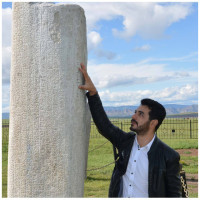
Managing Editor

Editorial Board







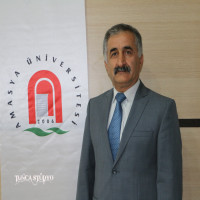
Auto-generated board - Please Edit This Title















 Web
Web
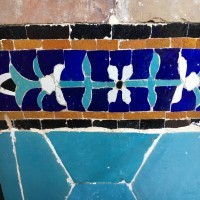







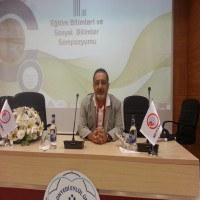





 Web
Web


Statistics Editor
Language Editor


Proofreading Editors

Graphic and Layout Editor

Owner (in the name of Amasya University Graduate School of Social Sciences)



